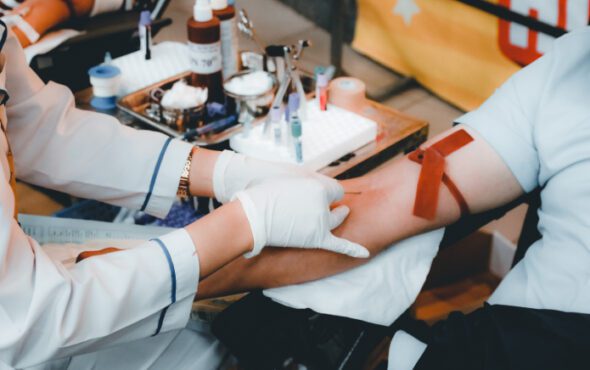
France has lifted its ban on gay and bisexual men donating blood, ending restrictions that have been in place since early on in the HIV/AIDS epidemic.
Announcing the move on 11 January, the country’s Minister of Solidarity and Health took to Twitter to announce that the changes will come into effect on 16 March.
Olivier Véra wrote: “From March 16, all French people, whatever their sexual orientation, will be able to donate blood!
“We are ending an inequality that was no longer justified.”
References to sexual orientation in blood donation questionnaires will be removed from the aforementioned date.
First beginning in 1983, it was initially rolled back in July 2016 – though donors were required to be abstinent before donating.
This period was initially set at one year, being lowered to four months in 2019.
Under the new rules, those wishing to donate blood will have to declare whether or not they are undergoing HIV prevention treatments.
Additionally, people will be asked about recent sexual activity and drug use – though this will not be in relation to sexual orientation.
Speaking on behalf of the L’Interassociative lesbienne, gaie, bi et trans, one of the leading LGBTQ+ rights groups in France, Matthieu Gatipon-Bachette told Le Parisien that the group is happy about the ban being lifted.
Dès le 16 mars, tous les français, quelles que soient leurs orientations sexuelles, pourront donner leur sang !
Nous mettons fin à une inégalité qui n’était plus justifiée. #DonDeSang🩸 pic.twitter.com/wjnd1ylqt1— Olivier Véran (@olivierveran) January 11, 2022
He said: “Imposing a four-month period of abstinence on homosexuals wishing to donate blood is totally absurd and has always been seen as a form of discrimination, especially when we know that donations are in short supply.
“There must obviously be a health safety framework to respect, but it must not be based on the sexual orientation of the donor.”
Blood donation restrictions for gay men were eased in England, Scotland and Wales in 2021 after a similar decision was made in the US in 2020 following a drop in the country’s blood supply.
Now, people can donate if they have had the same sexual partner for the last three months, meaning gay and bisexual men in sexually active and monogamous relationships can give blood for the first time.
The policy was first changed in 2011 to allow gay and bisexual men who have not had sex in the past 12 months to donate.
In 2017, it was revised again to permit donations by men who have not had sex in the past three months, which excluded sexually active men who were in monogamous relationships.
Donors who have participated in anal sex with a new or multiple partners in the past three months will still have to wait three months to donate, regardless of their gender.



